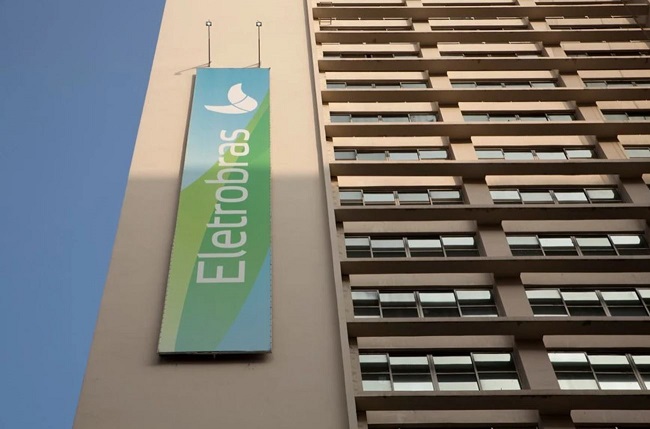Mars Exploration: The Impact Of Early Cartographic Disputes On Public Perception

Welcome to your ultimate source for breaking news, trending updates, and in-depth stories from around the world. Whether it's politics, technology, entertainment, sports, or lifestyle, we bring you real-time updates that keep you informed and ahead of the curve.
Our team works tirelessly to ensure you never miss a moment. From the latest developments in global events to the most talked-about topics on social media, our news platform is designed to deliver accurate and timely information, all in one place.
Stay in the know and join thousands of readers who trust us for reliable, up-to-date content. Explore our expertly curated articles and dive deeper into the stories that matter to you. Visit NewsOneSMADCSTDO now and be part of the conversation. Don't miss out on the headlines that shape our world!
Table of Contents
Mars Exploration: How Early Mapping Disputes Shaped Public Perception of the Red Planet
The quest to understand Mars has always been intertwined with our attempts to map it. Long before rovers trundled across its rusty plains, cartographic disputes – disagreements over the interpretation of early telescopic observations and the very nature of Martian features – significantly impacted public perception of the Red Planet, shaping narratives that persist even today. This article delves into how these early mapping controversies fueled public fascination, fueled speculation, and ultimately influenced our approach to Martian exploration.
The Birth of Martian Canals: A Controversial Legacy
The late 19th and early 20th centuries witnessed a surge in Martian observation, primarily driven by advancements in telescope technology. This era, however, is arguably most famous for the infamous “canals” controversy. Italian astronomer Giovanni Schiaparelli’s observations, initially described using the Italian word “canali” (channels), were unfortunately translated into English as “canals,” implying artificial construction. This subtle but significant linguistic shift ignited the public imagination.
Percival Lowell, a wealthy American astronomer, seized upon Schiaparelli's observations, publishing several books detailing a complex Martian civilization that had built these canals for irrigation. Lowell’s captivating, albeit ultimately inaccurate, descriptions fueled a wave of popular interest in Mars, shaping a public perception of a dying world striving for survival. This image, while scientifically incorrect, deeply ingrained itself in the collective consciousness, influencing science fiction and popular culture for decades.
The Debate Continues: Maps, Missions, and Public Opinion
The "canals" debate wasn't resolved overnight. As better telescopes and observational techniques emerged, the "canals" theory crumbled under the weight of contradictory evidence. However, the impact of this early cartographic controversy was profound. The initial public excitement, fueled by the potential for extraterrestrial life, created a fertile ground for investment in space exploration. Even as the reality of Mars – a cold, desert world – became clearer, the legacy of Lowell's imaginative maps continued to resonate.
Subsequent missions, like Mariner 4's flyby in 1965, revealed a cratered, seemingly lifeless landscape. This stark contrast to the romanticized Martian image fostered public disappointment, raising questions about the value of expensive space exploration. This highlights the important role of accurate scientific communication in managing public expectations. Poorly communicated scientific findings, especially those with significant public interest, can lead to misunderstanding and disillusionment.
Modern Mars Exploration and Public Perception: A New Era
Today, the public’s understanding of Mars is significantly more nuanced. High-resolution images from orbiters and rovers like Curiosity and Perseverance paint a picture of a complex geological history, revealing evidence of past water and potential for past microbial life. This has reignited public interest, focusing on the scientific pursuit of understanding Mars' past habitability and potential for extant life, rather than the fanciful notions of Martian civilizations.
Key Takeaways:
- Early cartographic interpretations of Mars significantly influenced public perception, initially fueled by the "canals" controversy.
- Percival Lowell's work, while inaccurate, captivated the public and shaped popular understanding of Mars for decades.
- The discrepancy between initial expectations and subsequent findings highlighted the importance of clear scientific communication in managing public expectations.
- Modern missions have shifted public perception towards a scientifically driven exploration of Mars' potential for past and present life.
The story of Martian cartography serves as a powerful reminder of how scientific interpretation, communication, and the media can shape public understanding of complex scientific issues. The legacy of these early disputes continues to inform how we approach both space exploration and public engagement with science.

Thank you for visiting our website, your trusted source for the latest updates and in-depth coverage on Mars Exploration: The Impact Of Early Cartographic Disputes On Public Perception. We're committed to keeping you informed with timely and accurate information to meet your curiosity and needs.
If you have any questions, suggestions, or feedback, we'd love to hear from you. Your insights are valuable to us and help us improve to serve you better. Feel free to reach out through our contact page.
Don't forget to bookmark our website and check back regularly for the latest headlines and trending topics. See you next time, and thank you for being part of our growing community!
Featured Posts
-
 Guardiolas Decision Echeverri Benched For First Time At Manchester City
May 18, 2025
Guardiolas Decision Echeverri Benched For First Time At Manchester City
May 18, 2025 -
 First Team Bench For Echeverri Guardiolas Manchester City Selection Analysis
May 18, 2025
First Team Bench For Echeverri Guardiolas Manchester City Selection Analysis
May 18, 2025 -
 Singapore Covid 19 Situation Report Videos Data And Analysis
May 18, 2025
Singapore Covid 19 Situation Report Videos Data And Analysis
May 18, 2025 -
 Fc Bayern Analyse Des Sieges In Hoffenheim Spielerbewertungen
May 18, 2025
Fc Bayern Analyse Des Sieges In Hoffenheim Spielerbewertungen
May 18, 2025 -
 Bitcoin As Legal Tender Comparing El Salvadors Successes And The Us Context
May 18, 2025
Bitcoin As Legal Tender Comparing El Salvadors Successes And The Us Context
May 18, 2025
Latest Posts
-
 F1 Imola Tsunoda Suffers Massive Qualifying Crash
May 18, 2025
F1 Imola Tsunoda Suffers Massive Qualifying Crash
May 18, 2025 -
 Real Time Palm Springs Weather Check For Road Closures And Dust Levels
May 18, 2025
Real Time Palm Springs Weather Check For Road Closures And Dust Levels
May 18, 2025 -
 Braga Benfica Ao Minuto Aguias E Guerreiros Buscam A Vitoria
May 18, 2025
Braga Benfica Ao Minuto Aguias E Guerreiros Buscam A Vitoria
May 18, 2025 -
 Nyses Kulr Reports 40 Revenue Growth In Q1 A Bitcoin First Strategy Pays Off
May 18, 2025
Nyses Kulr Reports 40 Revenue Growth In Q1 A Bitcoin First Strategy Pays Off
May 18, 2025 -
 Guia Completo De Dividendos Quem Paga E Quanto Receber Esta Semana
May 18, 2025
Guia Completo De Dividendos Quem Paga E Quanto Receber Esta Semana
May 18, 2025
